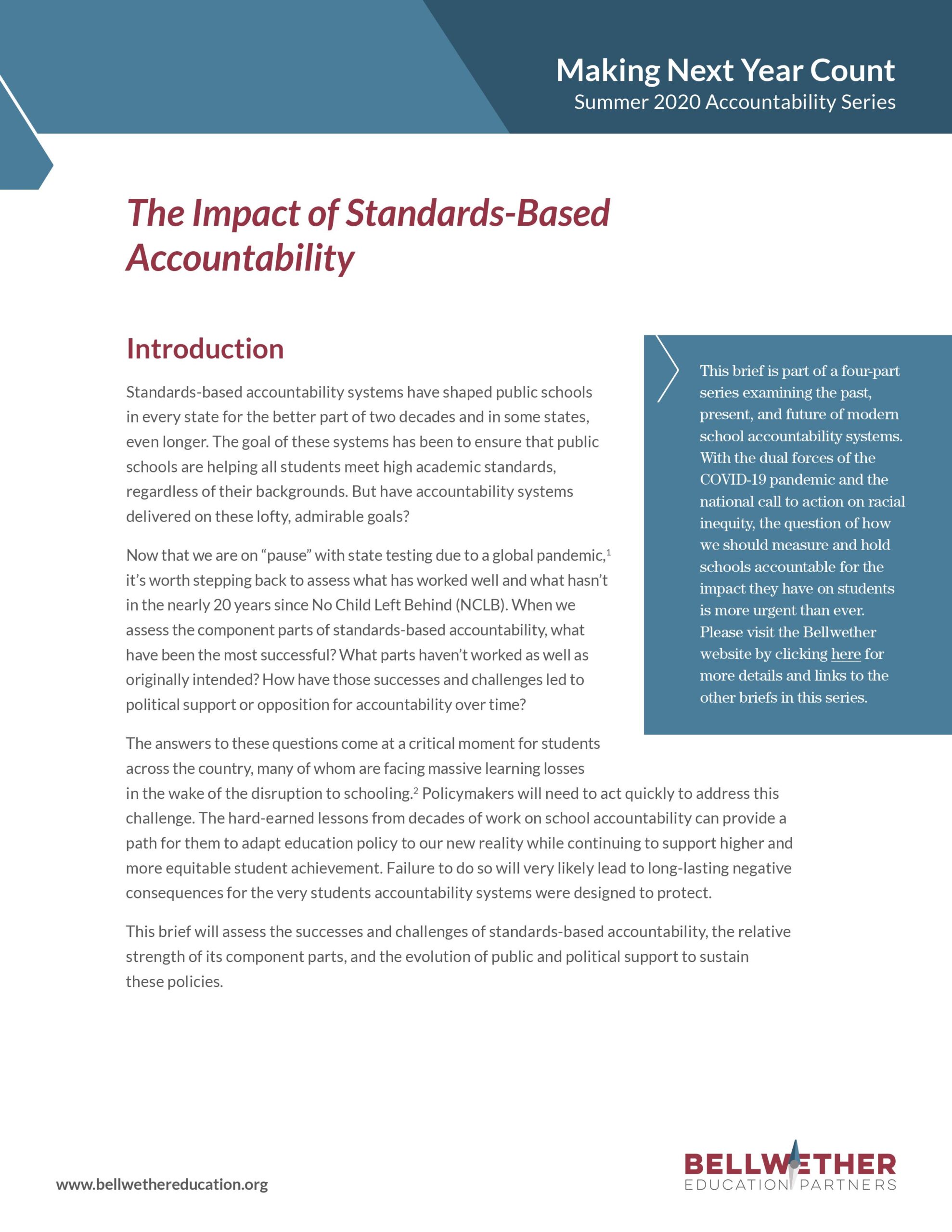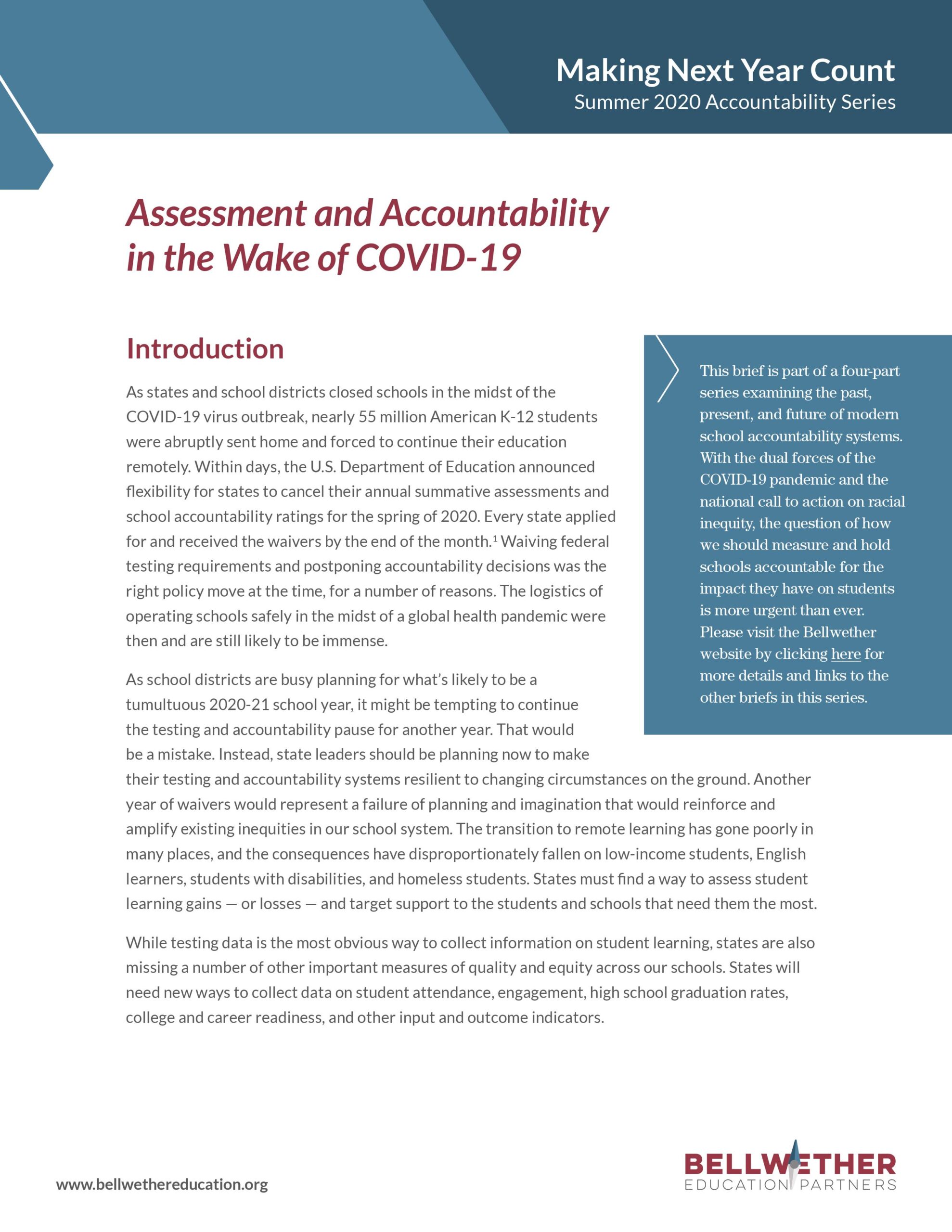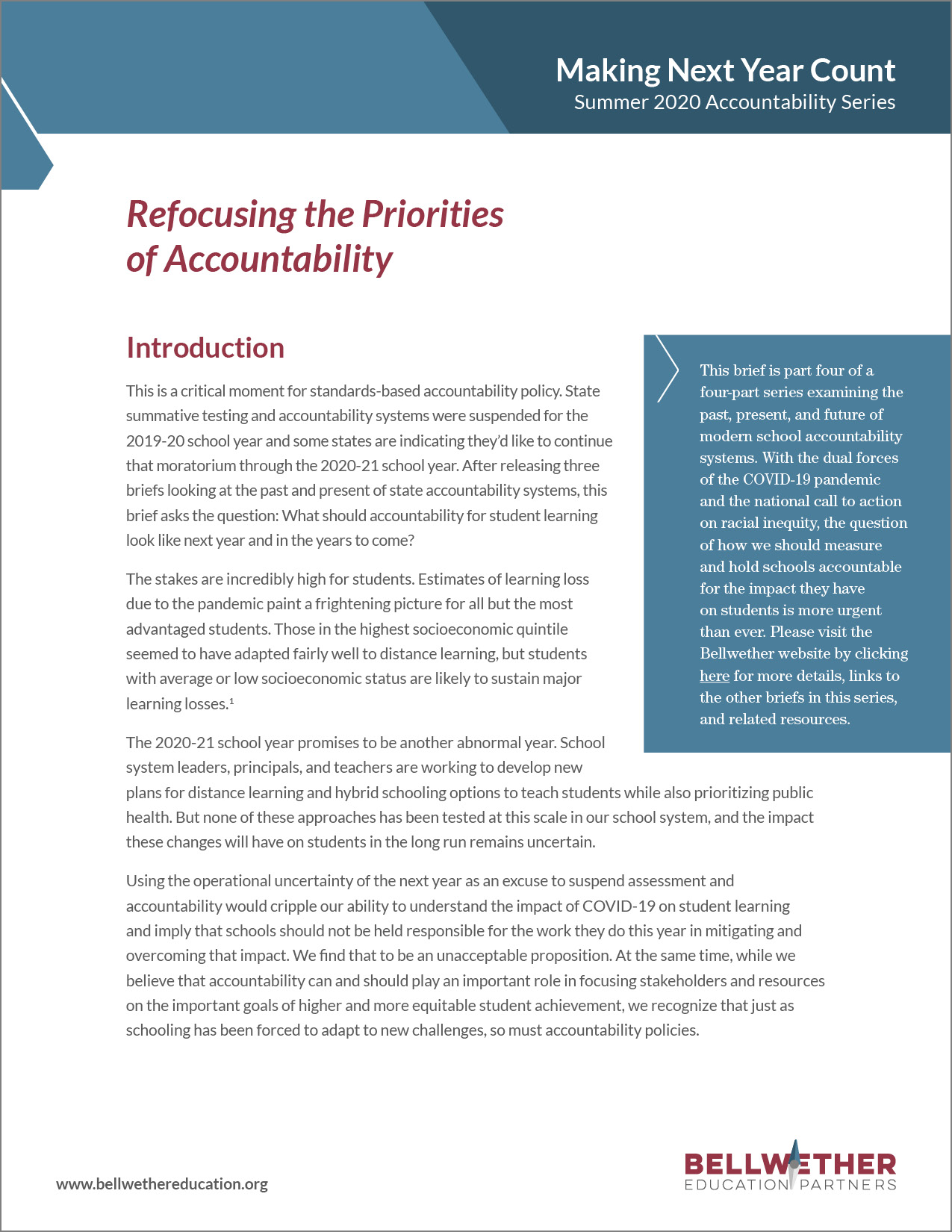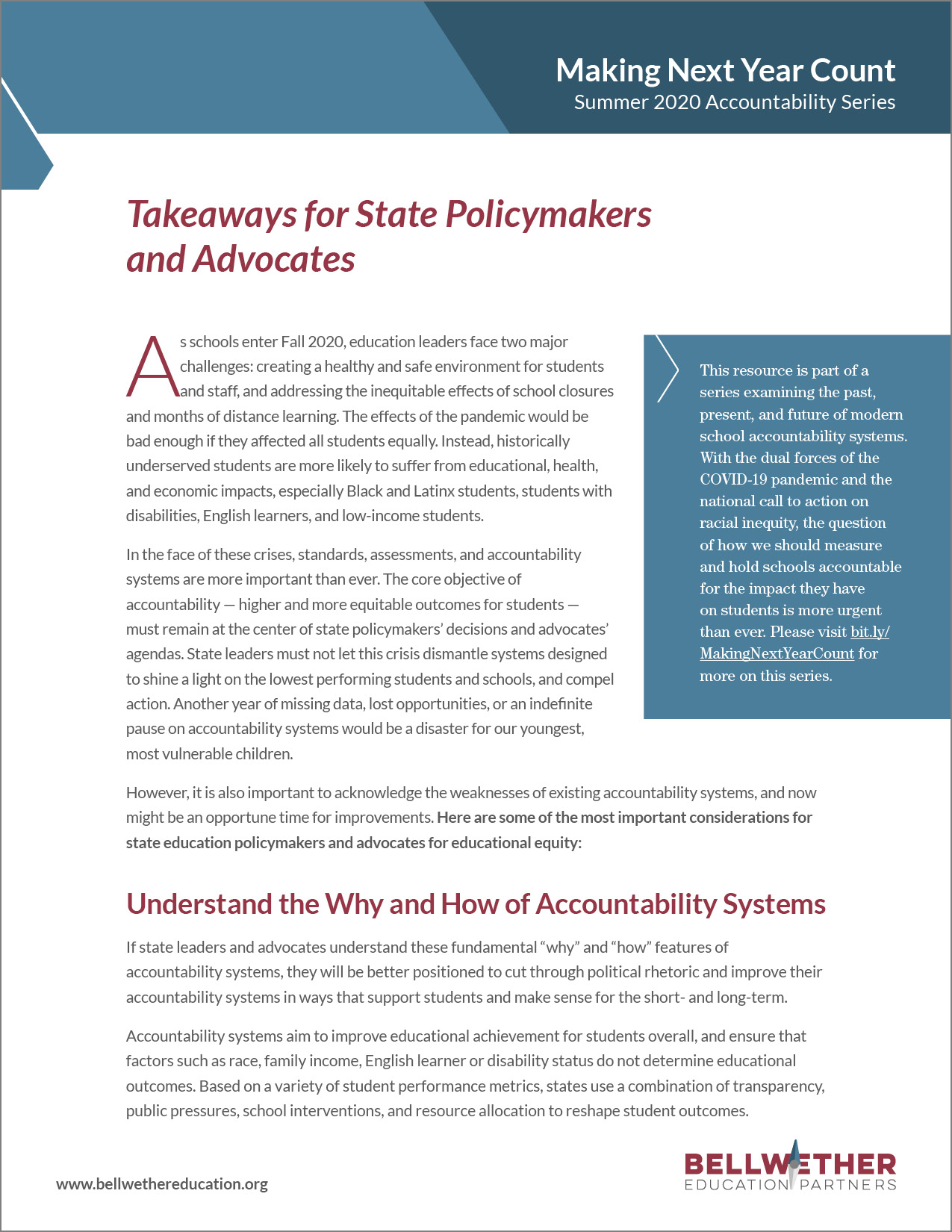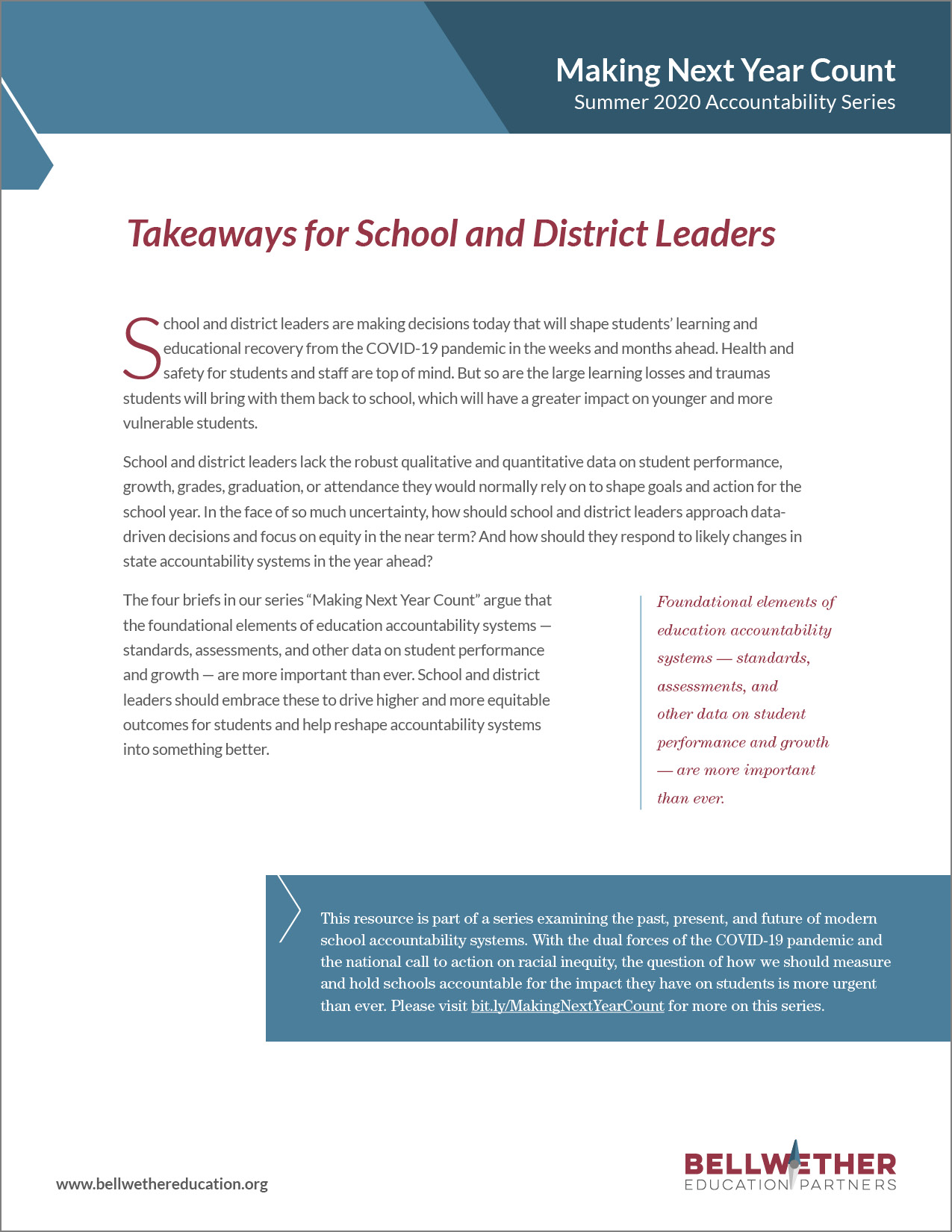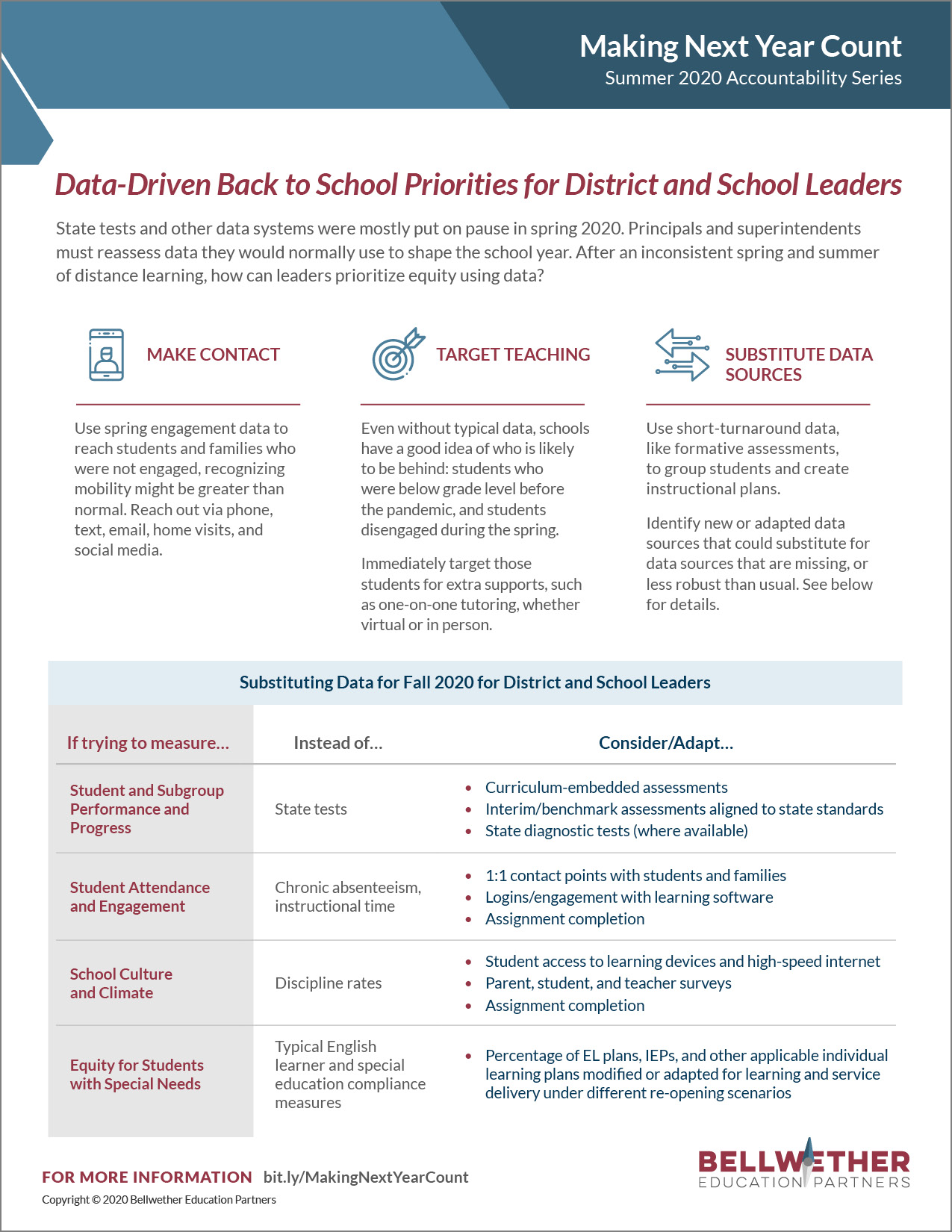For nearly two decades, state and federal policymakers have built standards-based accountability systems as a way to improve educational outcomes and to ensure that all students are held to the same rigorous standards. While the standards-based reform era has not fully lived up to the lofty goals of its early proponents, it has demonstrated some successes. Achievement scores and graduation rates have risen since the implementation of standards-based accountability systems, particularly for the most disadvantaged students, and we have much more information on school performance than we did prior to adoption of these policies, particularly for traditionally underserved students.
Yet those results have come with trade-offs. Imposing state standards limits teacher autonomy. Testing all students every year takes time out of the school day and costs money. And criticisms of standardized tests and their limitations as measures of quality, as well as pushback against how the data is used to drive decisions that affect schools, educators, and students have mounted over time. As federal accountability requirements have placed more pressure on states and schools, support for accountability has eroded on both the left and right ends of the political spectrum.
As a global pandemic interrupted purposefully designed systems of testing and accountability, we are left with critical questions: How does the underlying theory of standards-based accountability and its foundational goals of equity and transparency hold up decades later? What do key stakeholders need from these systems now? Given what we’ve learned from decades of successes and failures, how should these systems continue to evolve in the face of mounting political opposition?
This four-part series takes a step back to examine the past, present, and future of modern school accountability systems:
- The Historical Roots and Theory of Change of Modern School Accountability
- The Impact of Standards-Based Accountability
- Assessment and Accountability in the Wake of COVID-19
- NEW Refocusing the Priorities of Accountability
The lessons from this work on accountability has direct implications for education leaders. We developed three resources to help leaders directly apply the lessons and ideas from these briefs to their work:
- NEW Takeaways for State Policymakers and Advocates
- NEW Takeaways for School and District Leaders
- NEW Data-Driven Back to School Priorities for District and School Leaders
On Monday July 20th, we hosted a conversation with Jeb Bush, John B. King, Jr., and Carissa Moffat Miller exploring these same topics. Read six key takeaways from the webinar and watch the conversation here.

